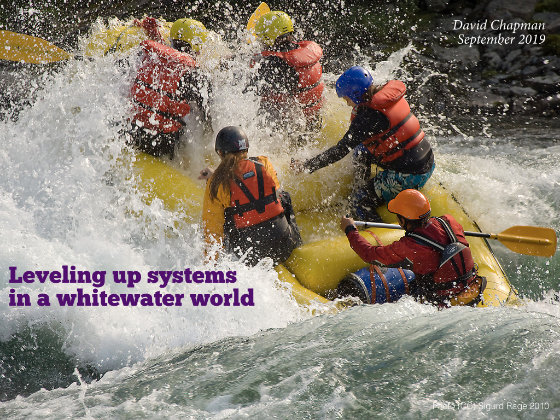
As an experiment in communicating meta-rationality, I led an interactive unconference session with a brief presentation followed by an exercise discussion. I hope to develop a workshop on meta-rational thinking, and the exercise I posed might be a part of the curriculum.
Slides are here. The rest of this post explains the exercise, which won’t be clear from the slides alone.
Most of us who work with rational systems at a moderately advanced level also practice meta-rationality. “Meta-rationality” means not taking a rational system for granted, but reflecting on how it is working in practice, and acting more effectively better by going beyond its bounds.
Unfortunately, we are not usually particularly good at this. Because the category “meta-rationality” has rarely been pointed out, and its value has rarely been explained, it is not taught in classes; its methods are not studied by either theorists or practitioners; and so it is mainly overlooked and underdeveloped.
When presenting to a group of highly competent technical folks, my intention was to point out some common types of meta-rational phenomena. I hoped that these would be recognizable, and participants would recall and share examples in their own work experience, or in accounts they had read or heard. This worked to an extent, with some great stories recounted. In retrospect it would have been better to give a more detailed explanation first. What I presented was, on the whole, too abstract to jog memories of specific cases.
However, the exercise may be clear if you have read other things I’ve written about meta-rationality. “Upgrade your cargo cult for the win” might be a good starting point. Or, for a concise definition, the “meta-rationality” section of “Introducing key terms”; for a simple example with exercises, “A first lesson in meta-rationality”; for a curriculum overview, “What they don’t teach you at STEM school.
The first few slides introduce meta-systematicity in general. Meta-rationality is meta-systematicity in the domain of rational work—that is, thinking and acting with respect to formal-ish1 systems. To avoid infodump overload, I used only the term “meta-systematic” in this presentation, and not “meta-rationality.”
The slide “Informal work makes formal systems work” is about “circumrationality,” although again I avoided that term. For an explanation of circumrationality in terms of a simple, concrete example, see “The parable of the pebbles.”
One type of meta-rational work is to revise a circumrational support structure in the light of observing how it works in practice. The next two slides are about that.
The following slide, “Informal laboratory contingencies,” is a list of things that happen in scientific and technical work. The actual practice of science, and of software development, is mostly this kind of circumrational stuff, which is “merely reasonable.” It is not formally rational, you don’t learn it in classes, and you never put it in the journal article or the program documentation. You learn it on the job, through apprenticeship.
If you show this list to anyone who has worked in science at the PhD level, or to software engineers with a few years of experience, they will immediately recognize the categories. They usually find them interesting and funny, and will often launch into a story about “a time like that when…” The audience at my presentation laughed while reading these, which suggests they could indeed tell a story or two!
So my experimental exercise used a parallel list of meta-rational contingencies—things that commonly come up in the course of meta-rational work. To the extent that accomplished technical folks do do meta-rational work, these should also be recognizable. There’s two slides full of those, and then a summary third slide. I was prepared with examples for most of the categories, in case they weren’t clear, but to keep the presentation short I didn’t go into those on the occasion. They are briefly noted in italics.
Do you recognize these categories? Can you tell a story about “a time when…”? Please let us know in a comment!
The remaining slides are ones I prepared but didn’t use for lack of time.
- The first is about meta-rationality in software development.
- The next is a table distinguishing “mere reasonableness” (sensible informal thinking and acting), rationality, and meta-rationality.
- The last three explain one of the meta-rational phenomena, “trading zones.” I was going to make slides to explain each in the list, but there wasn’t nearly time for that.
- 1.Formality is a matter of degree. Mathematical logic is extremely formal; a chemistry methods manual is quite formal; a corporate personnel policy is somewhat formal; a “Do Today” task checklist is only barely formal.